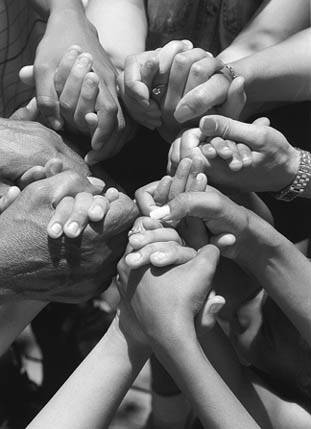Cambridge, MA. One of the lesser noticed but important contributions of Pope Francis’ Laudato Si comes at the very end: “At the conclusion of this lengthy reflection which has been both joyful and troubling, I propose that we offer two prayers. The first we can share with all who believe in a God who is the all-powerful Creator, while in the other we Christians ask for inspiration to take up the commitment to creation set before us by the Gospel of Jesus.” (n. 246) The second of these is a beautiful Trinitarian prayer, but it is the first on which I wish to comment here. It is “a prayer for our earth” that is to be shared by all “who believe in a God who is the all-powerful Creator.” (I give it below, near the end of this post.)
We can naturally assume that the intended audience includes Jews and Muslims but it is potentially much larger. Not only would many Hindus in theistic traditions that affirm a Hindu doctrine of creation be happy with the prayer, but also a much wider group who affirm “God” and “creation” in some serious manner. Even Buddhists who understand and respect what “God” means may feel moved to join in the prayer. The word “creation” is used 66 times in the document, “creator” 21 times, and “God” 178 times, and it is fair enough to think that Francis assumes that people will have studied these uses by the time they come to the final prayers. But since he does not make a heavy doctrinal point here, stipulating exactly what these words mean, we can assume a much larger audience of those who recognize a supreme deity, a divine source, a Divinity within the finite world we experience. So conceivably, Francis is inviting more than half the human race to share in this prayer together.
This is remarkable in particular because there has been great hesitation in Catholic circles about whether praying with people of other faith traditions is even allowed. One thinks immediately of the interfaith gathering Pope John Paul II hosted in Assisi in 1986 – where the leaders, gathered together, went off to separate places to pray separately, albeit at the same time. Cardinal Ratzinger did not attend the gathering, disturbed, among other things, by the idea of “praying with non-Christians.” We have since then been warned against syncretism any number of times.
The distinguished Jesuit scholar Jacques Dupuis devoted a last chapter of his last book, Christianity and the Religions (Orbis, 2002), to the issue of “interreligious prayer.” He makes a series of careful distinctions, noting how praying with Jews will be hardly surprising or uncertain at all, given the deep common ground that is shared. Similarly, Christians and Muslims can pray together, because in faith we have much in common. Beyond these, he is hopeful and optimistic that Christians can pray with still others, such as Hindus.
Dupuis notes for instance Pope Paul VI’s famous invocation of a prayer from the Brhadaranyaka Upanisad at an interfaith gathering in Bombay (Mumbai) in 1964:
This visit to India is the fulfillment of a long cherished desire. Yours is a land of ancient culture, the cradle of great religions, the home of a nation that has sought God with a relentless desire, in deep meditation and silence, and in hymns of fervent prayer. Rarely has this longing for God been expressed with words so full of the spirit of Advent as in the words written in your sacred books many centuries before Christ: “From the unreal lead me to the real; from darkness lead me to light; from death lead me to immortality.” (Brhadaranyaka Upanishad I.3.28)
This ancient Upanishadic prayer is our prayer, Pope Paul adds, “a prayer which belongs also to our time. Today more than ever, it should rise from every human heart.” Pope Francis is part of this great, though slender and often unnoticed tradition, appealing to the human heart and what we all share as humans. Of course we can pray together, every human being willing to pray for the future of our planet. So here then are the words Francis puts before us use in his first prayer at the end of Laudato Si:
All-powerful God, you are present in the whole universe and in the smallest of your creatures. You embrace with your tenderness all that exists. Pour out upon us the power of your love, that we may protect life and beauty. Fill us with peace, that we may live as brothers and sisters, harming no one. O God of the poor, help us to rescue the abandoned and forgotten of this earth, so precious in your eyes. Bring healing to our lives, that we may protect the world and not prey on it, that we may sow beauty, not pollution and destruction. Touch the hearts of those who look only for gain at the expense of the poor and the earth. Teach us to discover the worth of each thing, to be filled with awe and contemplation, to recognize that we are profoundly united with every creature as we journey towards your infinite light. We thank you for being with us each day. Encourage us, we pray, in our struggle for justice, love and peace.
As Christians, Francis says, we will have still more to say, by our own faith and the gift of Christ to and in us. Thus the second prayer at the encyclical’s end.
But let us all hope (and pray) that many billions of us — Christian and Jewish and Muslim, Hindu and many others too — can and will join in this first prayer, letting it rise in our hearts. But Christ will not hold it against us! Indeed, will he not be praying with us all?







